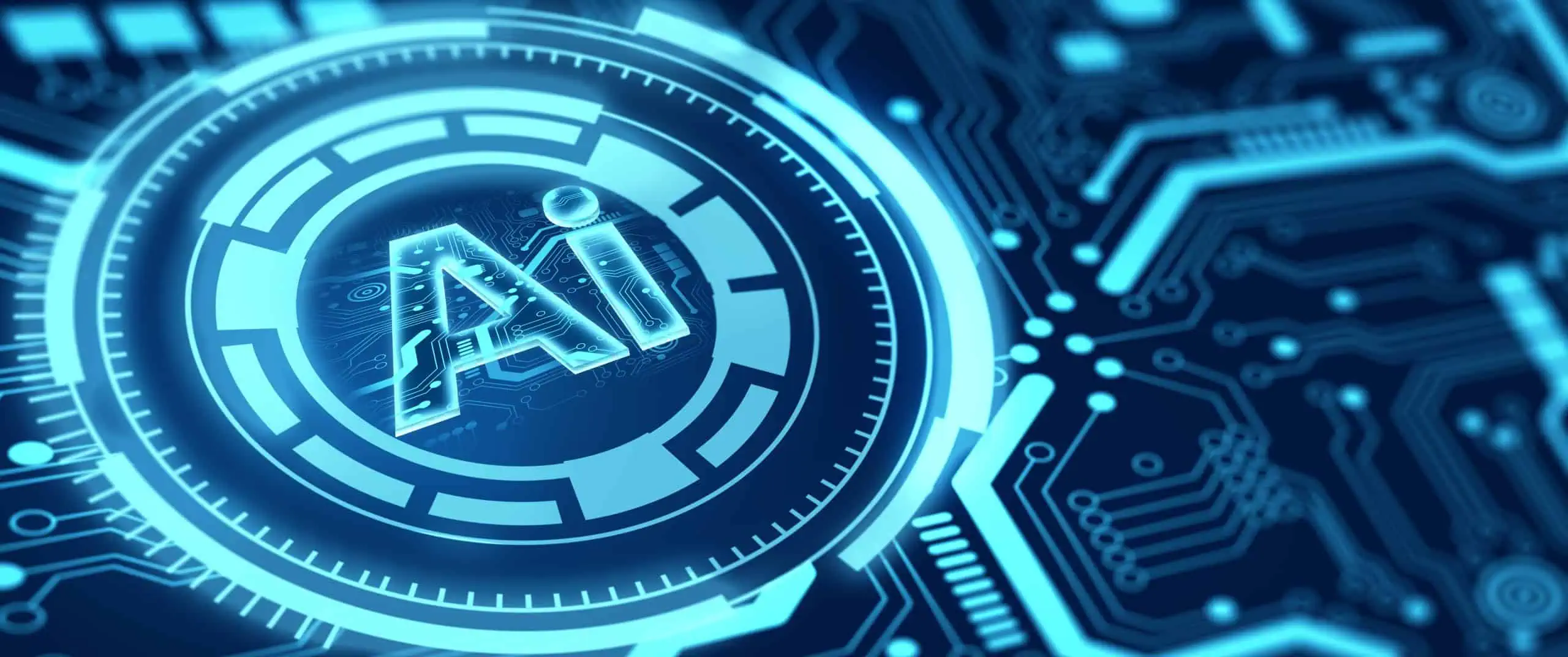Welcome to your essential guide on how A.I. is transforming the recruiting landscape. As a potential entry-level job seeker, understanding these changes can significantly enhance your approach to job hunting in today’s digital age.
The Revolution in Recruitment
A.I. has become a game-changer in recruiting, automating processes that once required extensive human labor and introduced unintentional biases. This guide explores how A.I. in recruiting can streamline your job search, match you with ideal opportunities, and ensure fair hiring practices.
Whether you are new to the job market or seeking to understand how A.I. tools affect your job prospects, this guide provides valuable insights into the modern recruiting process. Get ready to discover how A.I. technologies can help you stand out in a crowded field and more effectively connect you with your perfect job.
Understanding A.I. in Recruiting
Integrating Artificial Intelligence, in recruiting transforms how companies attract, evaluate, and hire new talent. Essentially, A.I. in recruiting uses automated tools and machine learning algorithms to streamline hiring. This technology speeds up recruitment and ensures a broader talent acquisition reach.
Automated Screening
In the era of information overload, A.I. helps recruiters by automating the screening of resumes. Systems equipped with A.I. can quickly analyze thousands of applications and highlight those that best match the job criteria. Besides, this approach significantly reduces bias, fostering a more inclusive recruitment process. As A.I. tools learn from the outcomes of their screening efforts, they become even more accurate in identifying suitable candidates.
Enhanced Candidate Experience
A.I. significantly improves the candidate experience by providing timely feedback and updates. Chatbots, for example, can answer frequently asked questions and guide applicants through recruitment.
Matching Candidates to Roles
At a deeper level, A.I. analyses a candidate’s qualifications, experiences, and potential cultural fit. For instance, natural language processing tools interpret subtle cues from a candidate’s application to suggest how well they might adapt to the company’s environment.
As with any technological advancement, adopting A.I. in recruiting requires consideration of ethical implications to ensure fairness in automated decisions. Therefore, recruiters should also be mindful of the data that feeds A.I. systems and continuously monitor their impact to avoid potential biases.
The Benefits of Using A.I. in Recruiting
A.I. brings numerous advantages to the recruiting process, significantly enhancing efficiency and decision-making accuracy. By automating routine tasks, A.I. allows recruiters to focus more on engaging with top talent.
Increased Efficiency
One of the significant strengths of employing A.I. in recruiting is its ability to swiftly handle large volumes of data. A.I. can screen hundreds of applications within minutes, identifying the most promising candidates without human bias. This rapid processing translates into faster hiring cycles, reducing the time positions remain unfilled.
Reduced Hiring Bias
AI tools are designed to focus on skills and experiences, minimizing unconscious biases that can influence human recruiters. By standardizing the screening process, companies ensure a fair evaluation of all applicants. This helps build a diverse workforce, which is linked to increased creativity and better problem-solving in teams.
Cost Reduction
Integrating A.I. into recruitment processes can lead to significant cost savings. By reducing the need for numerous screening interviews and lowering the risks of bad hires, A.I. minimizes recruitment expenses over time. Additionally, the precise matching capabilities of A.I. tools mean companies spend less on replacing ill-fitted hires and preserving valuable resources.
A.I.’s predictive analytics can assess future job performance based on historical data, further aiding in making informed hiring decisions.
Familiar A.I. Tools and Their Functions
Several AI-enabled tools make the recruiting process more precise and efficient. Each tool offers unique functionalities that contribute significantly to talent acquisition.
Resume Parsing Software
AI-powered resume parsers extract data from resumes, sorting information like education and experience. These tools quickly categorize large volumes of applications, accelerating the screening process. Consequently, recruiters spend less time on manual reviews.
Applicant Tracking Systems (ATS)
Applicant tracking systems are foundational in modern recruiting. They manage candidate data, track the hiring process, and provide analytics. ATS systems simplify workflow and communication, ensuring nothing slips through the cracks.
Chatbots
A.I. chatbots engage candidates in initial interactions, answering queries, and scheduling interviews. They offer a responsive interface for applicants, ensuring continuous communication. Furthermore, chatbots can pre-screen candidates, gathering preliminary data to assist recruiters.
Predictive Analytics
Predictive analytics tools forecast the success of candidates using historical data and modeling. They suggest which candidates are likely to perform well or stay long-term, streamlining the selection process.
Companies can efficiently enhance their recruitment strategy and secure the best talent by employing these advanced tools. Additionally, these technologies help maintain consistency in hiring practices, promoting fairness across all candidates.
The Role of A.I. in Enhancing Diversity and Inclusion
A.I. in recruiting plays a crucial role in promoting diversity and inclusion within the workplace. By removing biases and broadening the recruitment search, A.I. tools help create a more equitable work environment.
Objective Candidate Evaluation
A.I. algorithms are designed to evaluate candidates based on skills and experiences rather than subjective criteria like age, gender, or ethnicity. This objectivity leads to fairer candidate selection and opportunities for a diverse applicant pool to showcase their capabilities.
Broadening Talent Searches
A.I. enables recruiters to access a wider array of available talent. By expanding the geographical and demographic search parameters, A.I. systems identify potential candidates who might otherwise be overlooked.
Reducing Unconscious Bias
AI tools inherently lack human biases. By relying on data and programmed criteria, these technologies ensure that unconscious human prejudices do not influence the hiring process. Thus, companies are more likely to build a workforce that reflects a rich representation of society.
Overall, AI’s impact on improving diversity is a significant advantage beyond just filling roles—it fosters a culture of inclusivity and innovation. Effective use of A.I. in recruiting can lead to a more harmonious and productive workplace.
Challenges and Considerations in A.I. Recruitment
While artificial intelligence (A.I.) in recruiting offers substantial benefits, it also poses challenges and ethical considerations that must be addressed to maximize effectiveness and fairness.
Data Privacy and Security
Handling personal data responsibly is paramount. Organizations must ensure robust data protection measures to prevent breaches and misuse of candidate information.
Algorithmic Bias
Despite A.I.’s potential to reduce biases, poorly designed algorithms can perpetuate or even exacerbate them if the training data is biased. Continuous monitoring and updating algorithms are essential for fairness. You can learn more about maintaining ethical standards in A.I. at this National Institute of Standards and Technology page on A.I. Ethics.
Over-reliance on Technology
Relying heavily on AI can lead to overlooking the nuanced aspects of human interaction and decision-making that are crucial in recruiting. Balancing AI tools with human judgment is fundamental.
Compliance with Regulations
A.I. tools must comply with employment laws and regulations to ensure legal hiring practices. Employers should stay informed about changes in legislation. For details on current employment regulations, this resource from the U.S. Department of Labor can provide valuable information.
Lastly, training hiring teams on the capabilities and limitations of A.I. in recruitment is crucial for effective integration.
Case Studies: Successful A.I. Integration in Hiring
Examining real-world examples highlights the positive impact of A.I. in recruiting. These case studies demonstrate how A.I. tools enhance hiring processes and outcomes for diverse companies.
Global Tech Corporation
A leading technology company implemented an AI-driven applicant tracking system that increased hiring efficiency by 40%. The system’s capability to parse and analyze resumes in detail enabled the company to identify high-potential candidates faster and more accurately than traditional methods.
Retail Chain Expansion
A national retail chain used A.I. to staff new locations across the country. By utilizing predictive analytics, the company could forecast the success of candidates in specific roles and regions, resulting in a 30% decrease in early turnover rates.
Startup Innovation
A startup utilized an A.I. chatbot to engage with potential hires. This tool simplified the preliminary interview process, making it more interactive and less intimidating for candidates. Over six months, candidate satisfaction rates improved, and the hiring time was reduced significantly.
These examples underscore the transformative effects of A.I. in recruiting. Companies across various industries have successfully leveraged A.I. tools to refine their hiring practices and achieve remarkable results.
Future Trends: A.I.’s Evolving Impact on Recruiting
As technology advances, the role of A.I. in recruiting is set to grow, reshaping hiring practices with new innovations and broader applications.
Integration with V.R. and A.R.
Virtual Reality (V.R.) and Augmented Reality (A.R.) are beginning to intersect with A.I. in recruiting. These technologies can offer virtual office tours or realistic job previews, allowing candidates to experience a day in their potential roles before starting the job.
Enhanced Personalization
A.I. will continue to advance in delivering personalized experiences not only for candidates but also for recruiters. A.I. systems will increasingly predict the needs of recruiters and provide tailor-made information, streamlining the recruitment process even further.
Automated Continuous Learning
Future A.I. systems will automatically update their learning algorithms based on new data, ensuring that the tools evolve with the job market and ongoing regulatory changes. This continuous learning will improve A.I.’s reliability and efficiency over time.
Understanding these trends can help recruiters prepare for the future, ensuring they harness the full potential of A.I. in their hiring processes. For more insights on integrating technology into business practices, consider reading about MIT’s research on technological innovations in management.
FAQs
Here are some frequently asked questions about A.I. in recruiting to help clarify standard uncertainties and core concepts.
How does A.I. improve the accuracy of recruitment?
A.I. analyzes large volumes of data, ensuring candidates are assessed against consistent criteria. This process enhances the accuracy and fairness of candidate selection.
Can A.I. completely replace human recruiters?
While A.I. streamlines many recruitment tasks, it can’t replace the human insight critical for final hiring decisions. It’s a tool that supports human judgment, not substitutes it.
Is A.I. in recruiting expensive to implement?
Initially, A.I. tools involve some investment. However, their efficiency and savings on long-term operational costs offer significant financial benefits. Furthermore, many scalable solutions can fit different budget needs.
What safeguards are in place to prevent A.I. bias?
Developers focus on creating unbiased A.I. by training with diverse datasets and continuously monitoring outcomes. Regular updates are crucial to maintaining unbiased systems.
Understanding these FAQs can help you better understand how artificial intelligence (A.I.) in recruiting can be a transformative tool for your hiring processes. A.I. can significantly enhance recruitment operations and outcomes with careful integration and management.
Conclusion
A.I. in recruiting has revolutionized how companies approach hiring, bringing efficiency, accuracy, and diversity to the forefront. By automating time-consuming tasks, reducing biases, and expanding the talent search, A.I. tools enhance both the recruiter and candidate experiences. However, to fully leverage A.I.’s benefits, it’s crucial to navigate the challenges, including ensuring data security and managing algorithmic biases.
Embrace the Future of A.I. in Recruiting
As we move forward, the integration of A.I. in recruiting practices is expected to grow. Organizations that adopt this technology will likely gain a competitive advantage. Accessing a job board with a broader and more diverse talent pool is easier than ever before!
Consider A.I.’s innovative recruiting solutions to stay ahead in a rapidly evolving job market. Join Diversity Employment today to tap into a diverse pool of candidates and transform your hiring process. Embrace the future of recruiting and secure top talent effectively and fairly.




